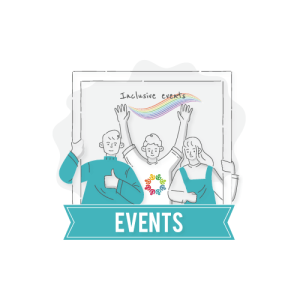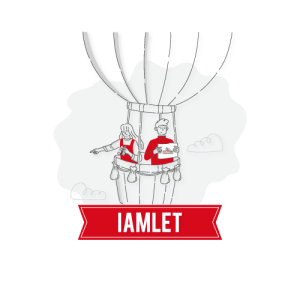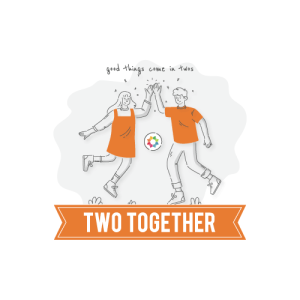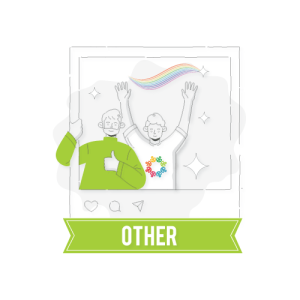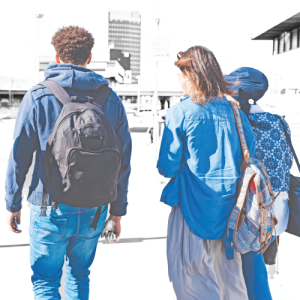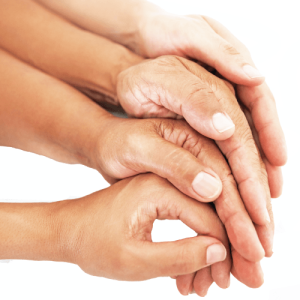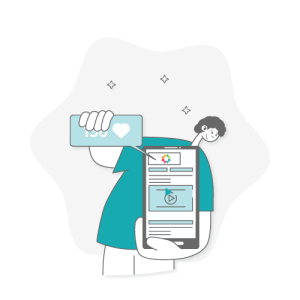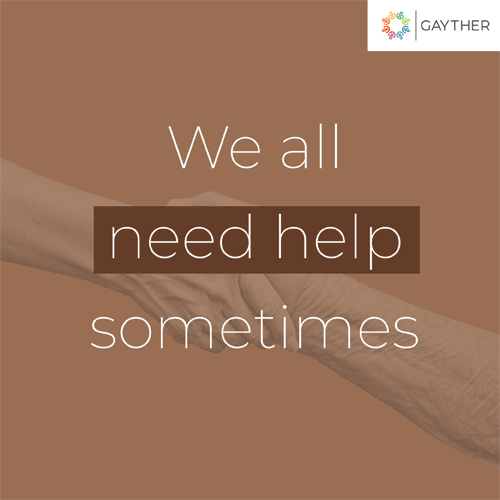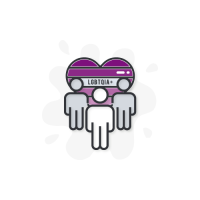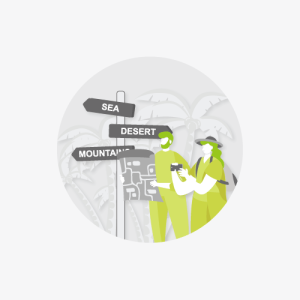
2023 LGBTQIA+ Pioneers

The Gay, Lesbian, Bisexual, Transgender and all those with non-traditional gender or sexual identities have been targeted and persecuted for thousands of years because of who they love or how they identify.
Over the centuries, many brave and exceptional individuals, often at significant personal risk, went against the odds and refused to let inequalities and prejudices stop them from changing the rules, laws and opinions relating to the LGBTQIA+ community across the globe.
We all must remember and celebrate all those exceptional individuals. Those people that are now and in the past who have fought hard for equal treatment for the LGBTQIA+ community
Over the centuries, many brave and exceptional individuals, often at significant personal risk, went against the odds and refused to let inequalities and prejudices stop them from changing the rules, laws and opinions relating to the LGBTQIA+ community across the globe.
We all must remember and celebrate all those exceptional individuals. Those people that are now and in the past who have fought hard for equal treatment for the LGBTQIA+ community
Welcome to the 2023 LGBTQIA+ Pioneers Collection
Each year we create LGBTQIA+ dollars and feature important and key individuals related to the LGBTQIA+ community. Though some of the individuals featured may not have publicly identified as LGBTQIA+, they are exceptional people who have advanced the community or world in some way.
REACH OUT FOR HELP
If you or someone you know suffers from depression, please reach out. Many trained and amazing groups and organisations can help you with whatever you face. To help you find what you need quickly, we have created the Gayther Support Directory. The directory is designed to help you find organisations, groups, and helplines around and near you quickly. Click here to access the directory or to learn more.

English Mathematician, Computer Scientist, Logician, Cryptanalyst, and Philosopher
Maida Vale, London, United Kingdom
b. 1912 – d. 1954
Maida Vale, London, United Kingdom
b. 1912 – d. 1954
Alan Turing was an exceptional individual who only got the public recognition he deserved long after he died. Alan was an English mathematician, scientist, logician, philosopher and cryptanalyst and was instrumental in the development of theoretical computer science, being considered by many as the father of both theoretical computer science and artificial intelligence. It was his time during the second world war, where he led a team in cracking intercepted coded messages from the axis powers. Developing a code-cracking method for deciphering strategic messages, which helped the allied forces win the war.
Alan Mathison Turing was born in the London suburb of Maida Vale in the United Kingdom. Alan’s parents were Julius, who worked for the Indian Civil Service, and Ethel, the daughter of the chief engineer of the Madras Railways. Julius and Ethel wanted their children to be brought up in the United Kingdom and moved back to London from India before Alan’s birth. From a very young age, Alan showed signs of being exceptionally gifted and was considered a genius by many of the schools he attended and those who knew him. Alan’s inclination to problem-solving and his love of mathematics dominated his education. In 1935, Alan graduated from King’s College, Cambridge, with a first-class honour in Mathematics. One year after graduating, he went to Princeton University in the United States, where he studied cryptology and later obtained his PhD.
Before the second world war, Alan began working part-time for the Government Code and Cypher School (GC&CS). The day after war was declared, Alan reported to Bletchley Park full-time, the headquarters of the GC&CS. Throughout his career, Alan was a fundamental figure in the code-breaking of the German cyphers at Bletchley Park. Alan, with his colleagues, developed a crib-based decryption known as bombe. The bombe was far more effective than the previous Polish bomba, becoming one of the primary tools to attack the Enigma-enciphered messages. Alan then began to work on solving the German naval Enigma and conceived the idea of Banburismu. This process used sequential conditional probability to help determine the likely settings of the Enigma machine. Alan developed many theories and concepts at GC&CS and later worked for Bell Labs in the United States. Designs, tools and ideas contributed to the advancement of encryption and code-breaking that ultimately helped win the second world war.
In his private life, Alan struggled with his sexuality. Whilst at boarding school, Alan formed a friendship with Christopher Morcom, who was considered Alan’s first love. Sadly, Christopher died at age 19 from complications linked to tuberculosis. In 1941, Alan proposed to his colleague, Joan Clarke, a fellow mathematician and cryptanalyst. However, Alan felt he could not go through with the marriage and admitted to his fiancé that he was gay. A few years before his death, Alan began a relationship with a 19-year-old man, Arnold Murray. Shortly after their relationship began, Alan’s home was robbed by an acquaintance of Arnold. When Alan reported the crime to the police, during the investigation, it was established that the two men were in a relationship. At that time, homosexual acts were a criminal offence, and both men were subsequently prosecuted. After his conviction, Alan was given the option of imprisonment or probation. Alan chose probation, but there was a condition that he undergo chemical castration, resulting in Alan becoming impotent. Alan’s criminal conviction also resulted in him losing his security clearance, no longer being able to work for the government and limiting his options to travel. Two years after his conviction, Alan was found dead in his home by his housekeeper, with Cyanide poisoning by suicide as the cause of his death.
For many years, the United Kingdom struggled to accept the LGBTQIA+ community. Individuals such as Alan Turing were often not talked about or given the public recognition he deserved. Over the years, as the country and people became more tolerant and accepting, a British programmer, John Graham-Cumming, decided to petition the government over the horrendous treatment of Alan. The petition received over 30,000 signatures, and on 10 September 2009, the then British Prime Minister, Gordon Brown, released a statement apologizing and describing the treatment of Alan as appalling. In December 2011, William Jones and his member of the British Parliament, John Leech, repetitioned the government. In 2012 a bill was passed in the House of Lords to grant a statutory pardon to Alan. The pardon ultimately acknowledged Alan’s many contributions to the war effort and his status as a UK national hero. Alan’s life is a stark reminder of how far the LGBTQIA+ community has come and how many members have suffered and had their lives cut short. The full potential never being fully realized, regardless of their brilliance or how they advanced their societies or country.
Thank you, Mr Turing, may you never be forgotten
Alan Mathison Turing was born in the London suburb of Maida Vale in the United Kingdom. Alan’s parents were Julius, who worked for the Indian Civil Service, and Ethel, the daughter of the chief engineer of the Madras Railways. Julius and Ethel wanted their children to be brought up in the United Kingdom and moved back to London from India before Alan’s birth. From a very young age, Alan showed signs of being exceptionally gifted and was considered a genius by many of the schools he attended and those who knew him. Alan’s inclination to problem-solving and his love of mathematics dominated his education. In 1935, Alan graduated from King’s College, Cambridge, with a first-class honour in Mathematics. One year after graduating, he went to Princeton University in the United States, where he studied cryptology and later obtained his PhD.
Before the second world war, Alan began working part-time for the Government Code and Cypher School (GC&CS). The day after war was declared, Alan reported to Bletchley Park full-time, the headquarters of the GC&CS. Throughout his career, Alan was a fundamental figure in the code-breaking of the German cyphers at Bletchley Park. Alan, with his colleagues, developed a crib-based decryption known as bombe. The bombe was far more effective than the previous Polish bomba, becoming one of the primary tools to attack the Enigma-enciphered messages. Alan then began to work on solving the German naval Enigma and conceived the idea of Banburismu. This process used sequential conditional probability to help determine the likely settings of the Enigma machine. Alan developed many theories and concepts at GC&CS and later worked for Bell Labs in the United States. Designs, tools and ideas contributed to the advancement of encryption and code-breaking that ultimately helped win the second world war.
In his private life, Alan struggled with his sexuality. Whilst at boarding school, Alan formed a friendship with Christopher Morcom, who was considered Alan’s first love. Sadly, Christopher died at age 19 from complications linked to tuberculosis. In 1941, Alan proposed to his colleague, Joan Clarke, a fellow mathematician and cryptanalyst. However, Alan felt he could not go through with the marriage and admitted to his fiancé that he was gay. A few years before his death, Alan began a relationship with a 19-year-old man, Arnold Murray. Shortly after their relationship began, Alan’s home was robbed by an acquaintance of Arnold. When Alan reported the crime to the police, during the investigation, it was established that the two men were in a relationship. At that time, homosexual acts were a criminal offence, and both men were subsequently prosecuted. After his conviction, Alan was given the option of imprisonment or probation. Alan chose probation, but there was a condition that he undergo chemical castration, resulting in Alan becoming impotent. Alan’s criminal conviction also resulted in him losing his security clearance, no longer being able to work for the government and limiting his options to travel. Two years after his conviction, Alan was found dead in his home by his housekeeper, with Cyanide poisoning by suicide as the cause of his death.
For many years, the United Kingdom struggled to accept the LGBTQIA+ community. Individuals such as Alan Turing were often not talked about or given the public recognition he deserved. Over the years, as the country and people became more tolerant and accepting, a British programmer, John Graham-Cumming, decided to petition the government over the horrendous treatment of Alan. The petition received over 30,000 signatures, and on 10 September 2009, the then British Prime Minister, Gordon Brown, released a statement apologizing and describing the treatment of Alan as appalling. In December 2011, William Jones and his member of the British Parliament, John Leech, repetitioned the government. In 2012 a bill was passed in the House of Lords to grant a statutory pardon to Alan. The pardon ultimately acknowledged Alan’s many contributions to the war effort and his status as a UK national hero. Alan’s life is a stark reminder of how far the LGBTQIA+ community has come and how many members have suffered and had their lives cut short. The full potential never being fully realized, regardless of their brilliance or how they advanced their societies or country.
Thank you, Mr Turing, may you never be forgotten
TAKING PRIDE IN YOU
Acceptance and coming to terms with a part of what makes you can be challenging for many people. The Gayther pride in series is about celebrating all things relating to sexualities, gender identities and special groups. Showcasing the exceptional people, interesting facts and ways to connect with those unique communities, all designed to help and promote pride in LGBTQIA+ identities

African American Activist in Social Movements for Civil Rights, Socialism, Nonviolence, and Gay Rights
West Chester, Pennsylvania, United States of America
b. 1912 – d. 1987
West Chester, Pennsylvania, United States of America
b. 1912 – d. 1987
Bayard Rustin was an amazing individual who devoted most of his life to fighting for justice, working on social movements for civil rights, socialism, nonviolence and gay rights. From organizing conferences to assist Martin Luther King Junior’s teachings of nonviolence to humanitarian missions worldwide to help refugees. Bayard was an influential figure, often working behind the scenes without full recognition of his contributions that ensured advancement in all the causes close to him.
Bayard Rustin was born to Archie Hopkins and Florence Rustin in West Chester, Pennsylvania. Bayard was brought up by his maternal grandparents, Julia and Janifer Rustin. Though his mother was present in his life, for many years, he believed his biological mother was his older sister. In 1932, Bayard attended Wilberforce College in Ohio, a historically black college. Bayard was active in many campus organizations, ultimately being expelled from the college after organizing a strike. Years later, Bayard attended Cheyney State Teachers College. When he moved to Harlem in 1937, he began studying at City College of New York. Whilst living in New York, he decided to become involved in activism, which saw him join the Fifteenth Street Meeting of the Religious Society of Friends, part of the Quakers. Through the meetings, Bayard became actively involved in efforts to defend and free the Scottsboro Boys, who were nine young black men accused of raping two white women.
Bayard was a member of the Communist Party of the USA, which under the direction of the Soviet Union, was actively supporting the civil rights of African Americans. The Communist Party favoured the approach of a separate state for African Americans in the Southeast of the country. Still, their policy changed at the start of World War II, refocusing their efforts on getting the USA to join the war. Bayard became disillusioned with the ideals and approach of the party, causing him to begin working with members of the Socialist Party of Norman Thomas. In the following years, Bayard became involved in organizing the famous march in Washington, DC, in 1941 to protest against racial segregation. Bayard also pioneered the desegregation of interstate bus travel by refusing to move to the back of the bus. He was subsequently arrested and beaten by the police for refusing to comply. Still, his protest gained public attention and helped the cause at that time. Involved in many causes over the years, it was in 1956 that he began to advise Martin Luther King (MLK) Junior on Gandhian tactics from the teachings of Mahatma Gandhi. At the time, MLK was arranging the now infamous Montgomery Bus boycott.
From a young age, Bayard knew that he was gay and speaking to his grandmother, he told her he preferred to be in the company of men rather than women. His grandmother responded I suppose that’s what you need to do. In 1953, Bayard was arrested in Pasadena, California, for vagrancy and lewd conduct after being found in a car with two men in their twenties. Bayard pleaded guilty and served 60 days in jail, and at this point, Bayard’s sexuality became known to the public. Bayard’s sexuality was one of the main reasons he often chose to work behind the scenes, behind well-known and influential figures on many important movements of that time. Even though he was often behind the scenes, Bayard’s contributions were invaluable. Without his dedication, intelligence and commitment, many causes may not have advanced as quickly as they did without his involvement. Bayard was often candid about his sexuality, even though homosexual activity was still a crime in the USA. His former partner, Davis Platt, once stated that Bayard never felt any shame or guilt about his homosexuality, which was rare during that period of history. It was not until the 1980s that Bayard became involved in gay rights activism. To protest the lack of marriage equality, Bayard adopted his then-partner, Walter Naegle, to protect his rights and create a legal union.
Right up until his death, Bayard was involved in causes relating to refugees. Upon his death, then-President Ronald Reagan issued a statement praising Bayard’s work for civil and human rights worldwide. Though some do not always give Bayard proper recognition for his contributions to the many causes, he was a man of conviction. Bayard had his beliefs and stood firm by them, often alienating sections and groups within the organizations and parties in which he was involved and participated. Bayard’s life and career are a testament to a man who saw injustice around him. Rather than saying or doing nothing, he decided to stand up, be heard, and help create a platform for those who led these life-changing movements. Bayard truly is a remarkable man who was involved in so many important movements during the 20th century.
Thank you, Mr Rustin, may you never be forgotten
Bayard Rustin was born to Archie Hopkins and Florence Rustin in West Chester, Pennsylvania. Bayard was brought up by his maternal grandparents, Julia and Janifer Rustin. Though his mother was present in his life, for many years, he believed his biological mother was his older sister. In 1932, Bayard attended Wilberforce College in Ohio, a historically black college. Bayard was active in many campus organizations, ultimately being expelled from the college after organizing a strike. Years later, Bayard attended Cheyney State Teachers College. When he moved to Harlem in 1937, he began studying at City College of New York. Whilst living in New York, he decided to become involved in activism, which saw him join the Fifteenth Street Meeting of the Religious Society of Friends, part of the Quakers. Through the meetings, Bayard became actively involved in efforts to defend and free the Scottsboro Boys, who were nine young black men accused of raping two white women.
Bayard was a member of the Communist Party of the USA, which under the direction of the Soviet Union, was actively supporting the civil rights of African Americans. The Communist Party favoured the approach of a separate state for African Americans in the Southeast of the country. Still, their policy changed at the start of World War II, refocusing their efforts on getting the USA to join the war. Bayard became disillusioned with the ideals and approach of the party, causing him to begin working with members of the Socialist Party of Norman Thomas. In the following years, Bayard became involved in organizing the famous march in Washington, DC, in 1941 to protest against racial segregation. Bayard also pioneered the desegregation of interstate bus travel by refusing to move to the back of the bus. He was subsequently arrested and beaten by the police for refusing to comply. Still, his protest gained public attention and helped the cause at that time. Involved in many causes over the years, it was in 1956 that he began to advise Martin Luther King (MLK) Junior on Gandhian tactics from the teachings of Mahatma Gandhi. At the time, MLK was arranging the now infamous Montgomery Bus boycott.
From a young age, Bayard knew that he was gay and speaking to his grandmother, he told her he preferred to be in the company of men rather than women. His grandmother responded I suppose that’s what you need to do. In 1953, Bayard was arrested in Pasadena, California, for vagrancy and lewd conduct after being found in a car with two men in their twenties. Bayard pleaded guilty and served 60 days in jail, and at this point, Bayard’s sexuality became known to the public. Bayard’s sexuality was one of the main reasons he often chose to work behind the scenes, behind well-known and influential figures on many important movements of that time. Even though he was often behind the scenes, Bayard’s contributions were invaluable. Without his dedication, intelligence and commitment, many causes may not have advanced as quickly as they did without his involvement. Bayard was often candid about his sexuality, even though homosexual activity was still a crime in the USA. His former partner, Davis Platt, once stated that Bayard never felt any shame or guilt about his homosexuality, which was rare during that period of history. It was not until the 1980s that Bayard became involved in gay rights activism. To protest the lack of marriage equality, Bayard adopted his then-partner, Walter Naegle, to protect his rights and create a legal union.
Right up until his death, Bayard was involved in causes relating to refugees. Upon his death, then-President Ronald Reagan issued a statement praising Bayard’s work for civil and human rights worldwide. Though some do not always give Bayard proper recognition for his contributions to the many causes, he was a man of conviction. Bayard had his beliefs and stood firm by them, often alienating sections and groups within the organizations and parties in which he was involved and participated. Bayard’s life and career are a testament to a man who saw injustice around him. Rather than saying or doing nothing, he decided to stand up, be heard, and help create a platform for those who led these life-changing movements. Bayard truly is a remarkable man who was involved in so many important movements during the 20th century.
Thank you, Mr Rustin, may you never be forgotten

Latin American Singer and Gender Pronoun Advocate
San Joaquín de Flores, Heredia Province, Costa Rica
b. 1919 – d. 2012
San Joaquín de Flores, Heredia Province, Costa Rica
b. 1919 – d. 2012
Chavela Vargas is an influential and popular Latin singer famous for her rendition of traditional Mexican rancheras music. Chavela had her unique singing style and would often sing solo only, accompanied by the sound of the guitar. Not only was Chavela musically gifted, but she also pushed the boundaries regarding gender identity. Chavela was often seen dressing up as a man, with her trademark appearance. She was known for smoking cigars, drinking heavily, and wearing her red poncho, which she did until her death.
María Isabel Anita Carmen de Jesús Vargas Lizano was born in San Joaquin de Flores in Costa Rica. Chavela is a pet name derived from Isabel. Chavela had a difficult childhood, from contracting polio to moving in with her uncle after her parents, Francisco Vargas and Herminia Lizano, divorced. From a young age, Chavela began singing on the streets. At age 17, she left Costa Rica and moved to Mexico to seek opportunities. Whilst busking in Mexico, she quickly became known for her signature dressing style in men’s clothing and a red poncho. The genre and style of songs Chavela was known for, rancheros, is sung from a man’s perspective, so she adapted the songs and sang them in her unique way, often slowing down the song’s tempo to make it come across as more dramatic. It was not until her 30s that Chavela became professional and quickly became a popular act in Acapulco, the centre of international tourism at that time.
Chavela began working with important songwriters such as Jose Alfredo Jimenez, which resulted in her releasing her first album in 1961, Noche de Bohemia. Throughout the 1950s, 60s and 70s, Chavela released over 80 albums and became hugely successful across Latin America and the world. Chavela also began to mix in artist circles, forming friendships with the artist Frida Kahlo, composer Agustin Lara and writer, screenwriter, and photographer Juan Rulfo. Chavela, in the 1970s, toured Mexico, the USA, France and Spain; however, due to her excessive drinking, she decided to take a break to battle alcoholism. Chavela returned to the stage in 1991 and quickly began to gain international recognition and appreciation.
Throughout her life, given her striking and unique style and refusal to change genders in her song, many people had suspicions regarding her sexuality. Many rumours existed about Chavela, including suspected intimate relationships with her artist friend Frida Kahlo and the American actress Ava Gardner. Within her inner circle, her sexuality was known as Chavela had been in a five-year relationship with her lawyer, Alicia Elena Pérez Duarte. It was not until the release of her 2002 autobiography (Y si quieres saber de mi pasado, which translated means, And if you want to know about my past) that she confirmed publicly she was a lesbian at age 81. In 2019, Chavela was honoured in San Francisco by being inducted into the Rainbow Honour Walk for LGBTQ individuals who have made significant contributions in their respective fields.
Chavela was an exceptional individual who often refused to comply with social standards of normalization. It is incredible to consider that during the 1940s and most of her career, she refused to change the genders of her songs. She also dressed; however, she felt or wanted, whether in men’s clothing or a dress. Chavela was a confident and unique individual who left her mark on Latin American music and the people of Mexico. On her deathbed, it is reported that her last words were, “I leave with Mexico in my heart”. Chavela is being discovered by a new generation, from films to her music. Songs like La Llorona, which she famously sang, have become mainstream and featured in Disney films. Her voice, passion, and character live on in her music for many future generations to enjoy.
Thank you, Mx Vargas, may you never be forgotten
María Isabel Anita Carmen de Jesús Vargas Lizano was born in San Joaquin de Flores in Costa Rica. Chavela is a pet name derived from Isabel. Chavela had a difficult childhood, from contracting polio to moving in with her uncle after her parents, Francisco Vargas and Herminia Lizano, divorced. From a young age, Chavela began singing on the streets. At age 17, she left Costa Rica and moved to Mexico to seek opportunities. Whilst busking in Mexico, she quickly became known for her signature dressing style in men’s clothing and a red poncho. The genre and style of songs Chavela was known for, rancheros, is sung from a man’s perspective, so she adapted the songs and sang them in her unique way, often slowing down the song’s tempo to make it come across as more dramatic. It was not until her 30s that Chavela became professional and quickly became a popular act in Acapulco, the centre of international tourism at that time.
Chavela began working with important songwriters such as Jose Alfredo Jimenez, which resulted in her releasing her first album in 1961, Noche de Bohemia. Throughout the 1950s, 60s and 70s, Chavela released over 80 albums and became hugely successful across Latin America and the world. Chavela also began to mix in artist circles, forming friendships with the artist Frida Kahlo, composer Agustin Lara and writer, screenwriter, and photographer Juan Rulfo. Chavela, in the 1970s, toured Mexico, the USA, France and Spain; however, due to her excessive drinking, she decided to take a break to battle alcoholism. Chavela returned to the stage in 1991 and quickly began to gain international recognition and appreciation.
Throughout her life, given her striking and unique style and refusal to change genders in her song, many people had suspicions regarding her sexuality. Many rumours existed about Chavela, including suspected intimate relationships with her artist friend Frida Kahlo and the American actress Ava Gardner. Within her inner circle, her sexuality was known as Chavela had been in a five-year relationship with her lawyer, Alicia Elena Pérez Duarte. It was not until the release of her 2002 autobiography (Y si quieres saber de mi pasado, which translated means, And if you want to know about my past) that she confirmed publicly she was a lesbian at age 81. In 2019, Chavela was honoured in San Francisco by being inducted into the Rainbow Honour Walk for LGBTQ individuals who have made significant contributions in their respective fields.
Chavela was an exceptional individual who often refused to comply with social standards of normalization. It is incredible to consider that during the 1940s and most of her career, she refused to change the genders of her songs. She also dressed; however, she felt or wanted, whether in men’s clothing or a dress. Chavela was a confident and unique individual who left her mark on Latin American music and the people of Mexico. On her deathbed, it is reported that her last words were, “I leave with Mexico in my heart”. Chavela is being discovered by a new generation, from films to her music. Songs like La Llorona, which she famously sang, have become mainstream and featured in Disney films. Her voice, passion, and character live on in her music for many future generations to enjoy.
Thank you, Mx Vargas, may you never be forgotten
EXCEPTIONAL AND DIVERSE LGBTQIA+ COMMUNITY
Learn more about the exceptional and diverse global LGBTQIA+ community. Discover interesting facts, join in the fun with interactive games, learn more about the exceptional pioneers and advocates and take pride in all of the sexualities, gender identities and special groups. Discover all things LGBTQIA+ with Gayther today

Pakistani Poet and founder of Sangat, an organization to support LGBT South-Asian
Youths Lyallpur, Pakistan
b. 1946 – d. 2011
Youths Lyallpur, Pakistan
b. 1946 – d. 2011
Ifti Nasim was an openly gay Pakistani poet who rose to fame after publishing a book of poetry entitled Narman, the first of its kind in Pakistan. Narman is a Persian word meaning hermaphrodite or half woman or man. The book immediately met with controversy in the deeply religious country, resulting in the book being distributed underground. The book and its openness inspired future generations within Pakistan and created a new genre within poetry known as Namani. While living in Chicago, Ifti co-founded Sangat, an organization that supports South-Asian LGBT Youths, a community he loved.
Iftikhar Naseem (known as Ifti Nasim) was born in Lyallpur (now known as Faisalabad) in Pakistan. Ifti’s father was a generalist and the owner of a newspaper, and his mother was a schoolteacher. Ifti was part of a large family; his father had two wives and 11 children, and the family had a passion and love of reading. Ifti grew up in a religious country where homosexuality was a taboo subject. As the child with the darkest skin in the family, Ifti felt further ostracized because he knew he was different from a young age. In his early 20s, after graduating from college with a law degree, Ifti emigrated to the United States. He had read an article in Life magazine and felt that the USA was the place for gays to be, and he applied to study for a post-graduate law degree in Detroit. Everything changed after Ifti’s father died, prompting him to follow his passion by changing subjects to those within the creative arts.
Ifti’s passion for writing never left him from his childhood, and upon graduating, he decided to move to Chicago. While in Chicago, he wrote the book Narman which featured a collection of openly transgender and queer themes, the first in Urdu. The book was immediately met with controversy. Even before its release, the printer of the book initially did not realize the content of the book. Upon discovering the theme, he wanted to destroy all copies. The book ended up being sold within an underground network. It quickly became popular with free-thinking youths and open-minded adults, especially within the South Asian LGBT community. The book, since its release, has changed and altered the lives of many. The book has gone on to sell copies all over Pakistan and around the world and inspired generations of LGBTQIA+ members to be open in their writings and a genre known as Namani.
Over the years, Ifti has written three books, two in Urdu and three in Punjabi, using his fame and connections to benefit the local Asian community within Chicago. Ifti was always proud of his South-Asian heritage and, with Mother Veeru, wanted to start an organization for Gay and Lesbian people of South Asian, Indian, and Pakistani origin. Initially, they formed a chapter within the organization, Trikone. Only later, they decided to create a new group known as Sangat. Sangat means togetherness and refers to a situation where both the musical instruments, sitar and tabla, are being played simultaneously. The name was born out of Ifti’s other passion in life, dancing.
Ifti, for many years growing up, was unable to be open about his sexuality. Though he knew he was gay from a young age, he grew up having to hide and suppress it from those around him and the wider society. Throughout the 1950s, 60s and 70s, Pakistan had a closeted gay community, with many gay men knowing others within the community. Ifti decided that moving to the United States was his best option to find career opportunities and explore his sexuality without fear of persecution. Ifti was a proud Southern Asian and Pakistani man. He used his platform to help his local community by raising awareness about the HIV and AIDS pandemic in the 1980s to support LGBTQ youths and adults through the organization Sangat. Ifti’s dedication and work for his beloved local LGBTQ South Asia community saw him inducted into the Chicago Gay and Lesbian Hall of Fame in 1996. Sadly, he died at 64 from a heart attack, but his memory and legacy will live forever. People for future generations will be able to discover his works and the organizations he founded, books and groups which ultimately benefit all within the LGBTQIA+ community
Thank you, Mr Nasim, may you never be forgotten
Iftikhar Naseem (known as Ifti Nasim) was born in Lyallpur (now known as Faisalabad) in Pakistan. Ifti’s father was a generalist and the owner of a newspaper, and his mother was a schoolteacher. Ifti was part of a large family; his father had two wives and 11 children, and the family had a passion and love of reading. Ifti grew up in a religious country where homosexuality was a taboo subject. As the child with the darkest skin in the family, Ifti felt further ostracized because he knew he was different from a young age. In his early 20s, after graduating from college with a law degree, Ifti emigrated to the United States. He had read an article in Life magazine and felt that the USA was the place for gays to be, and he applied to study for a post-graduate law degree in Detroit. Everything changed after Ifti’s father died, prompting him to follow his passion by changing subjects to those within the creative arts.
Ifti’s passion for writing never left him from his childhood, and upon graduating, he decided to move to Chicago. While in Chicago, he wrote the book Narman which featured a collection of openly transgender and queer themes, the first in Urdu. The book was immediately met with controversy. Even before its release, the printer of the book initially did not realize the content of the book. Upon discovering the theme, he wanted to destroy all copies. The book ended up being sold within an underground network. It quickly became popular with free-thinking youths and open-minded adults, especially within the South Asian LGBT community. The book, since its release, has changed and altered the lives of many. The book has gone on to sell copies all over Pakistan and around the world and inspired generations of LGBTQIA+ members to be open in their writings and a genre known as Namani.
Over the years, Ifti has written three books, two in Urdu and three in Punjabi, using his fame and connections to benefit the local Asian community within Chicago. Ifti was always proud of his South-Asian heritage and, with Mother Veeru, wanted to start an organization for Gay and Lesbian people of South Asian, Indian, and Pakistani origin. Initially, they formed a chapter within the organization, Trikone. Only later, they decided to create a new group known as Sangat. Sangat means togetherness and refers to a situation where both the musical instruments, sitar and tabla, are being played simultaneously. The name was born out of Ifti’s other passion in life, dancing.
Ifti, for many years growing up, was unable to be open about his sexuality. Though he knew he was gay from a young age, he grew up having to hide and suppress it from those around him and the wider society. Throughout the 1950s, 60s and 70s, Pakistan had a closeted gay community, with many gay men knowing others within the community. Ifti decided that moving to the United States was his best option to find career opportunities and explore his sexuality without fear of persecution. Ifti was a proud Southern Asian and Pakistani man. He used his platform to help his local community by raising awareness about the HIV and AIDS pandemic in the 1980s to support LGBTQ youths and adults through the organization Sangat. Ifti’s dedication and work for his beloved local LGBTQ South Asia community saw him inducted into the Chicago Gay and Lesbian Hall of Fame in 1996. Sadly, he died at 64 from a heart attack, but his memory and legacy will live forever. People for future generations will be able to discover his works and the organizations he founded, books and groups which ultimately benefit all within the LGBTQIA+ community
Thank you, Mr Nasim, may you never be forgotten
DISCOVER HOW WELL THE COMMUNITY ARE TREATED..
From marriages and unions to the decriminalisation of same-sex relationships, discover how well each country treats members of the LGBTQIA+ community. Updated each year, you can learn of the positive and negative developments for every country worldwide. Learn more about LGBTQIA+ Worldwide equality today

Hong Kong Singer and Actor who helped shape Cantopop
Kowloon, Hong Kong
b. 1956 – d. 2003
Kowloon, Hong Kong
b. 1956 – d. 2003
Leslie Cheung was a highly successful singer and actor in Hong Kong. Throughout his 26-year-long career, Leslie starred in 56 films and released over 40 music albums, making him one of the most well-known influencers of the 80s Cantopop era. Through acting, he would push boundaries, often playing queer characters in a very conservative period of Hong Kong’s film industry. Today, he is considered a trailblazer and icon in Hong Kong and Chinese LGBTQIA+ communities.
Chung Fat-Chung was born in Kowloon, in the then-British colony of Hong Kong. The youngest of 10 children, Cheung was brought up in a middle-class family. Cheung was the son of a well-known and successful tailor, Cheung Wut-Hoi, who dressed many famous stars of that period. Cheung had a problematic relationship with his family, from witnessing abusive treatment towards his mother to long periods of absence from his parents. Following his parent’s divorce, his father remarried, and Cheung then went to live with his grandmother, with whom he had a close bond. At age 12, Cheung enrolled in an independent boarding school near Norwich, England. While at school, he excelled at English and discovered his passion and love for all things film and music. While studying, he would often bartend to make money and was known for singing at a restaurant in the seaside town of Southend-on-Sea in England, a restaurant owned by his relatives. Cheung went on to study textile management at the University of Leeds. In his first year, he had to abandon his studies and return to Hong Kong after his father suffered a stroke.
Cheung found a job working for the clothing brand Levi’s in Hong Kong and went back to high school as a mature student. Whilst studying, Cheung formed a band. When auditions took place for the Rediffusion Television’s (RTV) Asian Singing Contest, each band member signed up. However, only Cheung remained in the contest’s final round, ultimately coming second. Cheung discovered the British actor Leslie Howard during childhood, inspiring him to change his name. Professionally and publicly, Cheung began to be known as Leslie. Once the first stage of the RTV contest had ended, Leslie proceeded to the pan-Asian stage, where he ended up coming fifth in the show. After success in the two competitions, Leslie was offered an acting contract with RTV and signed with Polydor Records. It was not until 1982 that his career started to take off after he signed with Capital Artists. The same year he released his first hit song, “The Wing Blows on”.
Over the years, Leslie released over 40 music albums and starred in 56 films. Leslie often came across as flamboyant in both his acting and music careers. When he released his song, Bewildered, in 2001, it was immediately met with controversy as the music video featured two gay men. The television stations banned the music video for advocating homosexuality; however, Leslie refused to edit the scenes or allow his work to be censored. In his private life, Leslie had relationships with a number of women over the years. However, during an interview in 1992, he announced that he was bisexual and believed that a good actor would be both androgynous and ever-changing. Five years later, in 1997, at his concert, he dedicated a love song to his mother and his childhood friend and now boyfriend, Daffy Tong Hok-Tak. Leslie received much praise for his bravery from the LGBT communities in Asia. His relationship with Daffy continued until his death.
Leslie was a remarkable individual for someone who had a troubled childhood; he would go on to support and raise funds for many children’s welfare charities. Leslie often used his success and platform to help others, even launching a charity fundraising at one of his concerts. Sadly, in his private life, Leslie suffered from depression and ended his life at age 46. When the news broke of his death, millions of fans across Asia were shocked. It rocked both the entertainment and Chinese community worldwide. At his funeral, even though fans and well-wishers were advised not to travel to Hong Kong due to the SARS pandemic, tens of thousands still came out to show their love and support for this icon. Depression and mental health awareness have dramatically improved over the years; however, there are still many members of the LGBTQIA+ community whose lives are cut short, including Leslie. Leslie was a trailblazer, icon and inspiration for many whose light will continue to shine even after all these years.
Thank you, Mr Cheung, may you never be forgotten
Chung Fat-Chung was born in Kowloon, in the then-British colony of Hong Kong. The youngest of 10 children, Cheung was brought up in a middle-class family. Cheung was the son of a well-known and successful tailor, Cheung Wut-Hoi, who dressed many famous stars of that period. Cheung had a problematic relationship with his family, from witnessing abusive treatment towards his mother to long periods of absence from his parents. Following his parent’s divorce, his father remarried, and Cheung then went to live with his grandmother, with whom he had a close bond. At age 12, Cheung enrolled in an independent boarding school near Norwich, England. While at school, he excelled at English and discovered his passion and love for all things film and music. While studying, he would often bartend to make money and was known for singing at a restaurant in the seaside town of Southend-on-Sea in England, a restaurant owned by his relatives. Cheung went on to study textile management at the University of Leeds. In his first year, he had to abandon his studies and return to Hong Kong after his father suffered a stroke.
Cheung found a job working for the clothing brand Levi’s in Hong Kong and went back to high school as a mature student. Whilst studying, Cheung formed a band. When auditions took place for the Rediffusion Television’s (RTV) Asian Singing Contest, each band member signed up. However, only Cheung remained in the contest’s final round, ultimately coming second. Cheung discovered the British actor Leslie Howard during childhood, inspiring him to change his name. Professionally and publicly, Cheung began to be known as Leslie. Once the first stage of the RTV contest had ended, Leslie proceeded to the pan-Asian stage, where he ended up coming fifth in the show. After success in the two competitions, Leslie was offered an acting contract with RTV and signed with Polydor Records. It was not until 1982 that his career started to take off after he signed with Capital Artists. The same year he released his first hit song, “The Wing Blows on”.
Over the years, Leslie released over 40 music albums and starred in 56 films. Leslie often came across as flamboyant in both his acting and music careers. When he released his song, Bewildered, in 2001, it was immediately met with controversy as the music video featured two gay men. The television stations banned the music video for advocating homosexuality; however, Leslie refused to edit the scenes or allow his work to be censored. In his private life, Leslie had relationships with a number of women over the years. However, during an interview in 1992, he announced that he was bisexual and believed that a good actor would be both androgynous and ever-changing. Five years later, in 1997, at his concert, he dedicated a love song to his mother and his childhood friend and now boyfriend, Daffy Tong Hok-Tak. Leslie received much praise for his bravery from the LGBT communities in Asia. His relationship with Daffy continued until his death.
Leslie was a remarkable individual for someone who had a troubled childhood; he would go on to support and raise funds for many children’s welfare charities. Leslie often used his success and platform to help others, even launching a charity fundraising at one of his concerts. Sadly, in his private life, Leslie suffered from depression and ended his life at age 46. When the news broke of his death, millions of fans across Asia were shocked. It rocked both the entertainment and Chinese community worldwide. At his funeral, even though fans and well-wishers were advised not to travel to Hong Kong due to the SARS pandemic, tens of thousands still came out to show their love and support for this icon. Depression and mental health awareness have dramatically improved over the years; however, there are still many members of the LGBTQIA+ community whose lives are cut short, including Leslie. Leslie was a trailblazer, icon and inspiration for many whose light will continue to shine even after all these years.
Thank you, Mr Cheung, may you never be forgotten
LGBTQIA+ COUNTRY & REGION GUIDES
With countries around the world treating members of the LGBTQIA+ community differently, planning an overseas trip can be challenging. With over 233 country and 435 regional guides, Gayther guides provide you with all the information you need when planning your trip. From LGBTQIA equality to essential travel information, discover Gayther guides today

The LGBTQIA+, Gay, Lesbian, Bisexual and Transgender communities have been around for thousands of years and referenced in many texts, scriptures and paintings from as early as 2400 BC. The diverse community includes many famous and notable people, from emperors, kings, poets, and politicians. Many of which have played key and important roles throughout history.
Over the centuries, the treatment of the community and its members’ rights has changed, from individuals being tolerated and often on the fringe of society to becoming active targets and facing brutal persecution. It was only until the end of the 18th Century that things improved. Large scale global change only began to occur in the 20th Century, typically from the 1970s to the present day.
The New York Stonewall Riots in 1969 became a catalyst for the global gay liberation movement. However, many brave individuals have stood up and championed the community throughout history, often at significant risk to themselves. It is often hard to imagine what life must have been like even as recent as 40 years ago, left alone 200 years. With conservative and religious beliefs dominating society, many individuals were required to suppress and hide their true selves for fear of persecution.
It took a group of brave and fearless individuals to stand up and have their voices heard. To show the world that the rules, laws and opinions had to change. The change resulted in the freedoms and rights many of us now enjoy. Increase acceptance and protection within the law directly given the work and effort of these exceptional individuals. Though there have been significant developments relating to the equality status for many members of the LGBTQIA+ community, they are not so fortunate. Many people still live in countries and under regimes; even today, they are actively targeted and in constant fear for their lives. In those countries right now, activists are fighting to change the rights and laws. As individuals and all the risks, and for their bravery and desire to see change, we are truly grateful for all they are going for the global community. We know many of those activists will become pioneers in the future.
Gayther feels it is crucial to highlight and focus on these exceptional pioneers as a community and their contributions to fairer and more tolerant societies worldwide. To showcase all that they have accomplished and to ensure that they are never forgotten, so we would like to take this opportunity to introduce you to Gayther’s annual pioneer collection.
Other collections: ADVOCATES | PIONEER COLLECTIONS: 2026 | 2025 | 2024 | 2023 | 2022 | 2021 | 2020 | 2019
Over the centuries, the treatment of the community and its members’ rights has changed, from individuals being tolerated and often on the fringe of society to becoming active targets and facing brutal persecution. It was only until the end of the 18th Century that things improved. Large scale global change only began to occur in the 20th Century, typically from the 1970s to the present day.
The New York Stonewall Riots in 1969 became a catalyst for the global gay liberation movement. However, many brave individuals have stood up and championed the community throughout history, often at significant risk to themselves. It is often hard to imagine what life must have been like even as recent as 40 years ago, left alone 200 years. With conservative and religious beliefs dominating society, many individuals were required to suppress and hide their true selves for fear of persecution.
It took a group of brave and fearless individuals to stand up and have their voices heard. To show the world that the rules, laws and opinions had to change. The change resulted in the freedoms and rights many of us now enjoy. Increase acceptance and protection within the law directly given the work and effort of these exceptional individuals. Though there have been significant developments relating to the equality status for many members of the LGBTQIA+ community, they are not so fortunate. Many people still live in countries and under regimes; even today, they are actively targeted and in constant fear for their lives. In those countries right now, activists are fighting to change the rights and laws. As individuals and all the risks, and for their bravery and desire to see change, we are truly grateful for all they are going for the global community. We know many of those activists will become pioneers in the future.
Gayther feels it is crucial to highlight and focus on these exceptional pioneers as a community and their contributions to fairer and more tolerant societies worldwide. To showcase all that they have accomplished and to ensure that they are never forgotten, so we would like to take this opportunity to introduce you to Gayther’s annual pioneer collection.
Other collections: ADVOCATES | PIONEER COLLECTIONS: 2026 | 2025 | 2024 | 2023 | 2022 | 2021 | 2020 | 2019
IS THERE SOMEONE YOU BELIEVE SHOULD BE FEATURED IN THE 2024 COLLECTION?
The Gayther annual Pioneer collection is designed to highlight and showcase exceptional individuals from or associated with the LGBTQIA+ community. If you know of someone you believe should be featured, we would love to hear from you. As a global service, we love to feature lesser-known international advocates and pioneers whenever possible
Quickly find all the information you need when planning a trip. Home to over 600 detailed country and regional guides, including a wide range of general information as well as dedicated LGBTQIA+ specific details
Search over 900 unique weather locations using the fun and interactive weather tool. Discover the best time to travel to a specific area, when is it the hottest, when is the least chance of rain or when it might snow
Planning a trip takes time and effort. Deciding where to go and how to get there can be a challenge. The interactive travel tool is home to thousands of airports, trains, buses and ports worldwide
Gayther Affinity is a private platform for the global LGBTQIA+ community. A space that gives you the freedom to be yourself. Helping you communicate with and connect to people similar to yourself. People from around the world from all age groups and backgrounds. Signup for your free Affinity account today
The big directory comprises fourteen groups and over one thousand categories, from travel accommodation to home maintenance
There are thousands of events taking place, it is not always easy to know what is going on and when, Gayther can help
The Care Providers and Services directory lists businesses and services that are inclusive and welcoming to all
There are millions of non-profit organisations, advice services, and support groups worldwide, all designed to help you
The RM Directory is designed to showcase organisations and services experienced in assisting those seeking refuge or relocating. Whether a refugee who is forced to leave home due to war or a migrant seeking out better living conditions, the RM Directory can help
Gayther...your community resources
Three dedicated websites offer various tools, services, guides, and much more. Free tools and services tailored toward all groups within the global LGBTQIA+ community
SMARTPHONE SHORTCUTS & BOOKMARKS
Gayther is a responsive website, which means it is designed to adapt and change to provide the best experience on any device and platform. Add a Gayther shortcut to your smartphone home screen or bookmark a page to access your preferred pages with just one-click
Discover more about the extensive tools, services and guides available on Gayther. From country and regional guides to LGBTQIA+ community resources, learn more about all that Gayther has to offer
Planning a trip? Gayther provides extensive country guides for every country across the globe
Find the information you need quickly with the wide range of guides available on Gayther
Be inspired and have some fun, with a wide range of articles, personality tests, quizzes and crosswords on offer
Discover more about sexuality, from the various identities to inspiring content and information
Discover more about the unique and diverse gender identities within the LGBTQIA+ community
Discover more about the special groups and the people and organisations supporting and helping the LGBTQIA+ community
Not sure what you are looking for? There are many ways to find what you need quickly; the search section provides links to the many search services
Impress your friends with key facts and keep updated on the latest developments and trends within the community
Discover Gayther Trinary, three unique services focused on the different aspects and requirements of the LGBTQIA+ community
IMPORTANT DISCLAIMER: The advocates’ and pioneers’ collections are designed to highlight exceptional individuals worldwide. Though Gayther is an LGBTQIA+ community resource, some of the individuals featured may not identify or have confirmed their sexual or gender identity. Gayther believes in inclusivity and the right for people to choose whether they share personal details about themselves, including those in the public eye. Featuring a person is not meant to cause offence or controversy; instead, it is only our intention to showcase exceptional individuals. Though we endeavour to keep all information across the site updated, we do not provide any guarantees of the accuracy and completeness of any information displayed. This page may contain external links to third party websites; Gayther provides these links for your convenience and does not endorse, warrant or recommend any particular products or services. By clicking on any external links, you will leave Gayther and be taken to the third-party website, which you do so at your own risk and by accessing the site, you will be required to comply with the external third party’s terms and conditions of use and privacy policies



